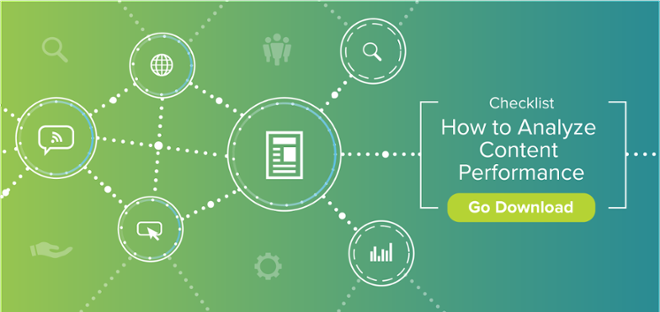Why Web 3.0 Will Rewrite the Business Playbook: An Interview withBrad Howarth, CMO Australia

Table of Contents

First short article prepared by Brad Howarth, CMO
What an severe honor it was to check out Melbourne and Sydney immediately after all this time. Following my presentation at the Salesforce Retail and Buyer Items Industries Summit, I achieved with my new buddy Brad Howarth of CMO Journal. Above the course of 1 hour, we explored every thing from the foreseeable future of brand names, the new purpose of marketing and advertising in 2030 organizations, and of program, the rising earth of World-wide-web3 (Web 3.), the following iteration of the web.
Brian Solis: Why Web 3. will rewrite the strategy of advertising
What if everything you understood about marketing and advertising stopped performing? A dialogue with Salesforce’s Brian Solis
Internet marketing procedures have altered drastically in latest several years as new technologies, channels and procedures have rewritten rules of engagement and supply. But at its main, lots of critical principles that underpin advertising – aggregating audiences, creating and delivering campaigns and driving conversion – keep on being fundamentally the very same as they ended up when they were initially refined in the 1950s and 1960s.
Even so, the planet is shifting rapidly, and is evolving towards what may possibly be the next fantastic revolution in electronic technologies: World-wide-web 3.. This promises to carry jointly ideas relating to identity, have confidence in, decentralisation and immersive virtual environments.
When the correct effect of Website 3. is difficult to forecast at this time, its proponents speak of a decentralised earth where by control and ownership of information and digital property resides with the unique, not the corporation. Must these prognostications translate into reality, they will have a profound effects on the marriage concerning organisations and their customers, redefining clients as community customers or stakeholders, and eschewing strategies in favour of ongoing relationships. This signals a tumultuous time forward for marketers.
Whilst this kind of fundamental alter is difficult to think about amidst the working day-to-day stresses of working a marketing purpose, it is extremely a lot on the mind of Brian Solis, awarding-profitable author and renowned digital anthropologist and futurist. In his existing job as world-wide innovation evangelist at Salesforce, Solis is tasked with checking out and interpreting the ramifications of electronic transformation, innovation and disruption. And there are couple greater emerging disruptions than that threatened by World wide web 3..
What concerns Solis now is that numerous organisations – and especially people born just before the digital revolution of the mid-1990s – are even now coming to grips with what it usually means to be a digital organization. And even individuals born of the digital era are them selves nonetheless adapting to the social character of the web’s next iteration from the mid-2000s.
“The guarantee of World wide web 3. is extremely highly effective, and it is also inescapable,” Solis tells CMO. “The difference involving World wide web 2. and World wide web 3. is rising the chasm between what firms need to have to do for this digital-initial period, and what they even now accomplishing from the pre-electronic era.”
He states this is mirrored in the way customers experience ecommerce – a advancement of the Web’s 1st era– which is basically the exact right now as it was 20 decades back.
“If you seem at the digitisation we are executing, regardless of whether that is retail or enterprise in normal, it is digitising siloed types, to do what they do at scale with larger performance and intelligence,” Solis claims. “But it is now firing in excess of to a group of consumers for whom it is not as productive as it applied to be.
“That claims the time for modify is actually below, since consumers are not likely to go backwards.”
Checking out new designs
Ought to the guarantees of Internet 3. hold true, Solis believes it will travel new forms of engagement amongst organisations and consumers created close to concepts of participation and value trade, alternatively than mono-directional commerce.
“That trajectory is going to make a new level or common of purchaser practical experience,” Solis states. “In this metaverse environment, shoppers are heading to have a a lot extra immersive net. The Website 3. assemble essentially encourages not just membership, but community.”
The best obstacle Solis believes lots of executives will facial area will not be that of technology, but what will occur from their very own encounters. These could build mindsets and procedures optimised for a world that shortly may perhaps not exist.
“In order to accelerate meaningful organization transformation and consumer relevance you have to start at a management level, and at a level that genuinely queries your individual assumptions of how to do issues,” Solis says.
The problem that emerges is that leaders who feel they are on the ideal path to digitisation now are only playing capture up, getting used the past handful of a long time modernising outdated processes rather than coming up with new types.
“We didn’t accelerate digital innovation, we accelerated digitisation,” Solis claims. “We are digitising pre-pandemic processes, supported by pre-pandemic organisational types. And many of these types are rooted in the 1950s and 1960s. We haven’t stopped to request what else we can do.”
Innovator or speedy follower
The challenge of Web 3. is reflected in the fact that for each era of engineering, significantly of the wealth has been designed by completely new entrants – Amazon and eBay for the Web’s very first iteration, Fb and Google for its second. When there are exceptions (Apple was formed in 1976, but subsequently underwent a renaissance with Steve Jobs’ return in 1996), organisations born prior to each and every wave have only succeeded by way of becoming rapidly followers.
Of system, history need not repeat by itself, and the new giants of the World-wide-web 3. era are nevertheless to emerge. That signifies opportunities exist for any organisation to just take a main job – if they start out now.
“The ‘digital-first’ model has to be reimagined, and Net 3. preparation has to start out now,” Solis says. “You have firms that are going to carry on to digitise current versions. But you have one more group of companies that are inquiring various queries now.
“You have to get back to basics and glance at the assemble of how you are connecting with your consumers, and just discover some pilots to examination.”
For Solis, there are two aspects that operate in any classic organisation’s favour. To start with, he counsels the Net 3.9 revolution will not transpire right away, so agile organisations will have the opportunity to discover and adapt. Secondly, those people that have invested to build a 360-diploma watch of their prospects, and organised their functions to utilise this viewpoint, will uncover their investments will be unbelievably precious in the World-wide-web 3. period.
“If you can know your clients, you can know what they value and how that value evolves over time, and how to organise all around the supply of that value now and over time,” Solis states. “It makes an agile, advanced model, so as the consumer starts to taste the empowerment of what whole Web 3. enables.
“What we are chatting about is shift from currently being a consumer to getting a stakeholder.”
Management-alt-delete
Ultimately, Solis believes the transformation to World wide web 3. and principles these types of as the metaverse will represent a reset for entrepreneurs and for the organisations that employ them – one thing he describes as a ‘control-alt-delete’ instant.
“This is a command-alt-delete instant – just one without a playbook – that needs the imagination and the reinvention of what it suggests to be a business in this new entire world,” Solis suggests. “If you experienced to invent the business of 2030 you would not seem to the 1950s and 1960s to learn how to market place to this audience – you would invent it. And that is the prospect we all confront.
“We’re not going to solve for it by making an attempt to adapt yesterday’s types for 2035. It is a moment for leaders to control-alt-delete leadership by itself.”
The write-up Why Internet 3. Will Rewrite the Company Playbook: An Job interview withBrad Howarth, CMO Australia appeared initially on Brian Solis.







